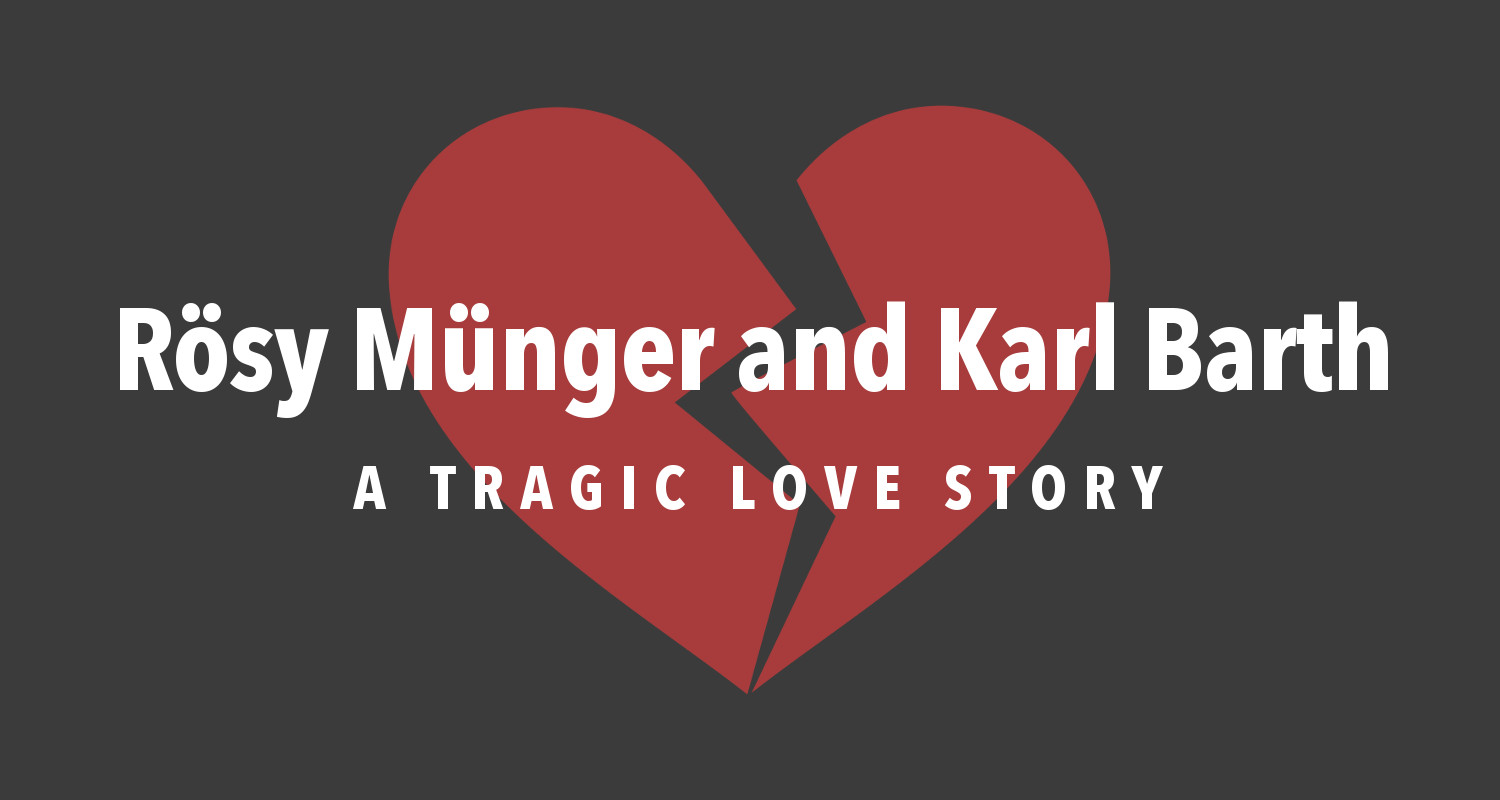 Karl Barth's first great love was a bernese girl named Rösy Münger (1888–1925). He met her when he returned to study at the university in Bern. Barth said "I spent the happiest hours with her" [1], but their relationship ended tragically because his parents sternly disapproved of their relationship together. Karl Barth's father Johann Friedrich Barth (1852–1912), commonly known as "Fritz Barth", was a controlling father and already unhappy with the liberal theology that Karl had acquired while previously studying at Berlin. Karl had returned to the university of Bern to appease his father's desire for him to learn a "positive" theology that he approved. Fritz disapproved of his son's relationship with Rösy, and so Karl's parents intervened and forced Karl to end his relationship with Rösy in May of 1910. Eberhard Busch wrote in his biography "Karl Barth was even presented with the inexorable view: 'The will of your parents is the will of God.' Above all because of pressure from his parents, Karl parted company with Rösy in May 1910. 'I have never been able to forget this girl." [2]. In addition to the intervention, Karl Barth was sent off to Tübingen 'at the bidding of my father' [3] to bring Karl in line with his father's "positive" line of theology [4].
Karl Barth's first great love was a bernese girl named Rösy Münger (1888–1925). He met her when he returned to study at the university in Bern. Barth said "I spent the happiest hours with her" [1], but their relationship ended tragically because his parents sternly disapproved of their relationship together. Karl Barth's father Johann Friedrich Barth (1852–1912), commonly known as "Fritz Barth", was a controlling father and already unhappy with the liberal theology that Karl had acquired while previously studying at Berlin. Karl had returned to the university of Bern to appease his father's desire for him to learn a "positive" theology that he approved. Fritz disapproved of his son's relationship with Rösy, and so Karl's parents intervened and forced Karl to end his relationship with Rösy in May of 1910. Eberhard Busch wrote in his biography "Karl Barth was even presented with the inexorable view: 'The will of your parents is the will of God.' Above all because of pressure from his parents, Karl parted company with Rösy in May 1910. 'I have never been able to forget this girl." [2]. In addition to the intervention, Karl Barth was sent off to Tübingen 'at the bidding of my father' [3] to bring Karl in line with his father's "positive" line of theology [4].
Suzanne Selinger summaries the tragic demise of the Karl Barth relationship Rösy Münger in her book Charlotte von Kirschbaum and Karl Barth:
In the summer of 1907, when he was twenty-one and a student in Bern, Barth fell deeply in love with a young woman named Rösy Münger. We know very little about her. She was gentle, and Barth was teaching her to love theology. They knew with absolute certainty that they wanted to marry, but Barth's parents refused to accept the relationship, and Barth acquiesced in their intervention. At a final meeting the two burned their letters. Barth never got over this love and kept a picture of Rösy till the end of his life. He saw her only once again, in an unplanned, fleeting encounter: she came to hear him preach at the cathedral in Berne around 1915. Rösy's life ended prematurely in 1925: she died of leukemia. Karl spent a day in his study grieving for her. [5]
Karl Barth did not stay at the university in Tübingen for long, and within the year he moved on to be an assistant pastor in Geneva, where Barth delivered his lectures in the same room where the famous reformers John Calvin and John Knox had preached [6]. It was at this time, a year after Karl was compelled to end his relationship with Rösy Münger (May 1910) that he became engaged to Nelly Hoffman (May 1911). Karl Barth met his future wife Nelly Hoffmann (August 26, 1893–1976) in a first-year confirmation class that Karl was teaching as an assistant pastor in the Madeleine church in Geneva [7]. Nelly was not yet eighteen years old when they were engaged on May 16th, 1911 [8], and their engagement was not long after Karl was forced to end his relationship with Rösy Münger, and so many conclude that Nelly Hoffman and Karl Barth's marriage was essentially arranged, either at the direct or indirect dictation of Barth's parents wishes.
Karl Barth's tragic love story with Rösy Münger was the beginning of the constellation of the bright and bleak constellation of relationships in Karl Barth's life, that deserves more attention.
Sources:
1. Busch, Eberhard. Karl Barth: His Life from Letters and Autobiographical Texts. Philadelphia: Fortress, 1976. 42. Print.
2. Ibid. Busch. 42.
3. Ibid. Busch. 43.
4. Ibid. Busch. 40.
5. Suzanne Selinger, Charlotte von Kirschbaum and Karl Barth: A Study in Biography and The History of Theology, (The Pennsylvania State University Press, University Park: 1998), Print. 5.
6. Ibid. Busch. 53.
7. Ibid. Busch. 59.
8. Ibid. Busch. 59.



Leave a comment